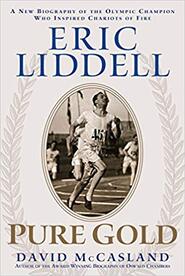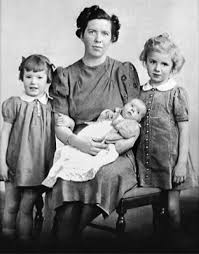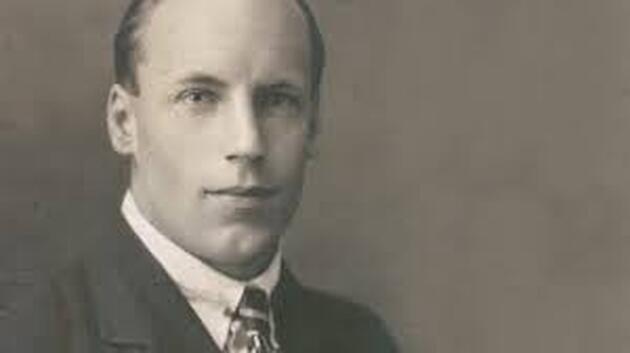Be still, my soul,
The Lord is on thy side.
Bear patiently the cross of grief or pain.
Leave to thy God to order and provide,
Through every change, He faithful will remain.
Be still my soul, thy best, thy heavenly friend
Through thorny ways leads to a joyful end.
--Be Still My Soul, Katharina A. von Schlegel, 1752
I’ve never seen the 1981 biopic “Chariots of Fire.” For most of my life, I’d never even heard of its subject, a Scottish runner and 1924 Olympic gold medalist named Eric Liddell.
But then at the turn of the millennium, I was soundly saved. I started a monthly Christian Music Hour for nursing-home residents, and became immersed in the old hymns that they loved. In the process, I fell head over heels for “Be Still My Soul,” written in 1752 by German hymnist Katharina von Schlegel. And I learned that it was the favorite hymn of this fellow Liddell.
Not interested in track or the Olympics, I didn’t pay much attention. But his name stuck with me. And as I memorized the lyrics to “Be Still My Soul,” I occasionally wondered about this man who shared my love of this beautiful hymn.
To guide the future as He has the past.
Thy hope, thy confidence, let nothing shake;
All now mysterious shall be bright at last.
Be still, my soul; the waves and winds still know
His voice who ruled them while He dwelt below.

It was a month or two ago that Maranatha Baptist University professor David Saxon and his wife Jamie recommended a biography of Eric Liddell, Pure Gold by David McCasland. I quickly found a used copy and added it to my Must Read stack.
Here’s the story in a nutshell.
When Liddell won the gold medal in 1924, the world was his oyster. Or it would have been, had he been interested in the world. But he wasn’t; he was interested only in serving the Lord. And so, having been born in China to missionary parents, it was to China that he returned after winning the gold.
Liddell’s was not a spectacular missionary story. He didn’t carve out new territory for Christ in uncharted lands, as did Judson in Burma. His work didn’t necessarily lead to millions of converts over the generations, as did the efforts of Carey in India. Instead, Liddell spent his years in northern China teaching, coaching various sports, sharing the gospel with the residents of remote villages, and being a godly and beloved role model to all who knew him.
When World War II reached the Pacific, Liddell was among the hundreds of foreigners who were confined to a Japanese prison camp in Weihsien, China. It wasn’t a horrific place—nothing like Auschwitz or Dachau or any of the other monstrous camps run by the Nazis. But it was a prison nonetheless, separating him for three years from his beloved wife Flo and their three daughters, who had escaped to Canada.
It was in this camp that 43-year-old Eric Liddell unexpectedly died, months before the end of the war in the Pacific, of a brain tumor.
And all is darkened in the vale of tears;
Then shalt thou better know His love, His heart,
Who comes to soothe thy sorrows and thy fears.
Be still, my soul; thy Jesus can repay
From His own fulness all He takes away.
 Eric Liddell's wife Flo and their daughters Heather, Maureen and Patricia
Eric Liddell's wife Flo and their daughters Heather, Maureen and Patricia But it is a wonderful book nevertheless.
I think one of the main reasons I loved Pure Gold is this: In many ways, Liddell was a very ordinary man. He was intelligent but not a great genius. Nor was he known for astounding bravery in the face of enemy attacks or for a spectacular sense of humor or light-up-the-room personality. He was apparently as reserved as he was humble. But those he lived and worked with seem to have loved and respected him beyond measure for his kindness, his concern for others, his self-sacrificing conduct, and his overriding love for, and complete surrender to, our Creator God.
“He wasn’t a great leader, or an inspired thinker,” wrote an unnamed internee in a personal diary, “but he knew what he ought to do, and he did it. He was a true disciple of the Master and worthy of the highest of places amongst the saints gathered in the Church triumphant.” (Page 285)
Liddell did some writing towards the end of his life, and Pure Gold contains many enlightening and uplifting quotes. For instance, he opened an essay entitled “The Key to Knowing God” thusly: “One word stands out from all others as the key to knowing God, to having his peace and assurance in your heart; it is OBEDIENCE … OBEDIENCE to God’s Will is the secret of spiritual knowledge and insight. It is not willingness to know, but willingness to DO God’s Will that brings certainty.” (Page 241-242)
The book also quotes a number of moving tributes at memorial services following Liddell’s death. For instance, long-time friend A. P. Cullen said this:
“The most noteworthy feature in Eric’s life was the regular and rapid progress of his spiritual development. It is as phenomenal as the speed with which, in a 100-yards race, after being yards behind at halfway, he would catch up and pass the winning post an easy first, leaving the other competitors standing. In the athletic world, no one knows how he did it—it remains a mystery; but for his progress in the spiritual race, there is a very clear and definite explanation. First of all, absolute surrender to the Will of God … It was toward the attainment of that ideal that he directed all his mental and spiritual energies.” (pages 283-284)
Though I painstakingly nursed Pure Gold, not wanting it to end, I regretfully finished it early this morning. I’d been saving the last chapter but woke at 4 a.m. and, well, there the book was. Irresistible.
As I mentioned, I don’t like it when biographies imagine what the author couldn’t possibly have known. But in the case of Pure Gold, I will make one exception. It’s at the very end of the book (page 298), where McCasland imagines the thoughts of Eric’s widow Flo on the first New Year’s Eve following his death:
“Eric’s race was over, but hers had just begun. She vowed to run it willingly, eagerly, and, at the end, to throw back her head to finish in triumph and joy. Eric had gone on ahead, and one day she would be with him again.
“She needed neither hymnal nor piano as she softly sang:
When we shall be forever with the Lord,
When disappointment, grief, and fear are gone,
Sorrow forgot, love’s purest joys restored.
Be still, my soul; when change and tears are past,
All safe and blessed we shall meet at last.”
A perfectly poignant ending to a close-to-perfect book. Highly recommended!




 RSS Feed
RSS Feed